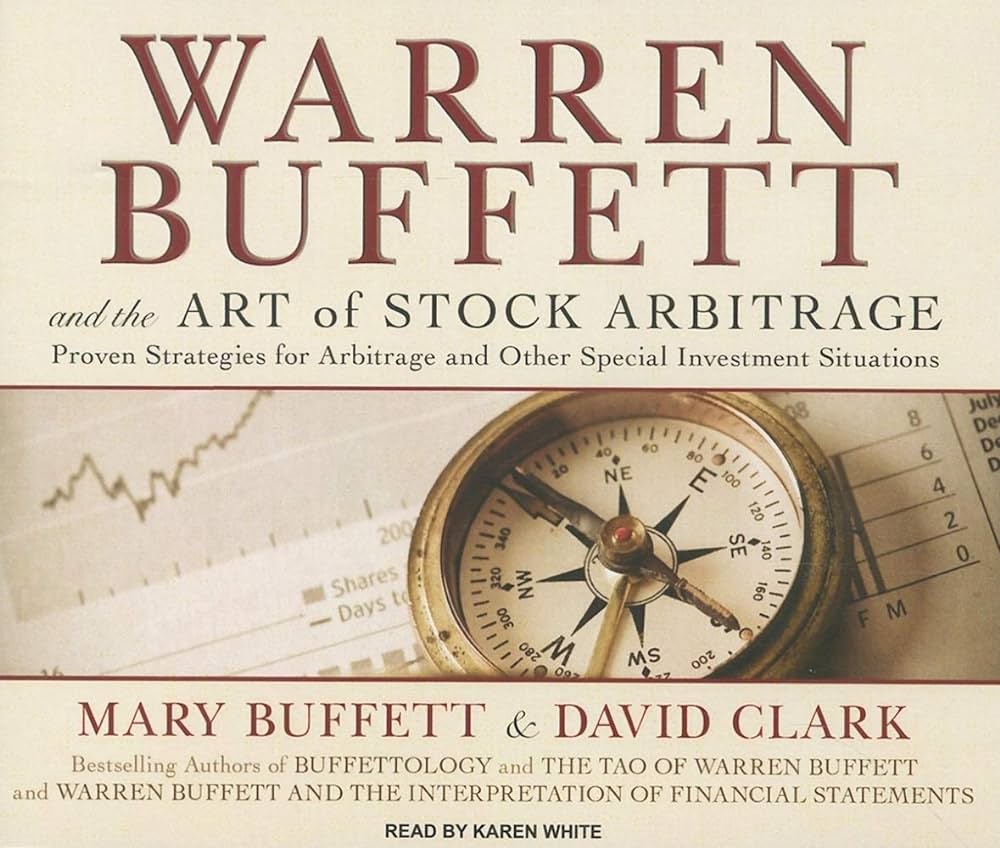Why we love investment bankers
Why do we love investment bankers? For their Silian Rail, raised lettering business cards of course.

No in all seriousness, without the relentless toil of the investment banking community within the world’s ivory towers our investment universe would be greatly diminished. They do the lion’s share of the heavy lifting that makes our strategy profitable and sustainable; and for that we raise our glasses to them.
It takes an immense amount of work to put together a takeover or merger bid and then an equally large amount of work to close the deal. For us there is a massive network effect at play; all that work is the catalyst in our converter. While it probably doesn’t take as much work to arbitrage each particular deal, it takes laser focus to manage 40 or so concurrent arbitrage and other corporate action related positions as a dynamic portfolio.
We like most have a deep adoration for Warren Buffett. But we, unlike most, like him for his arbitraging rather than his long-term commitments. One of Buffett’s quotes that we love most is:
“In recent years, most arbitrage operations have involved takeovers, friendly and unfriendly. With acquisition fever rampant, with anti-trust challenges almost non-existent, and with bids often ratcheting upward, arbitrageurs have prospered mightily. They have not needed special talents to do well; the trick, a la Peter Sellers in the movie, has simply been “Being There.” In Wall Street the old proverb has been reworded: “Give a man a fish and you feed him for a day. Teach him how to arbitrage and you feed him forever.” – Warren Buffett, Berkshire Hathaway Inc Investor Letter 1988.
Below we’ll try and lay out a few teachings on arbitraging.
Buffett is a voracious arbitrageur (don’t believe me? Google it). He loves the intellectual pursuit of it, and he loves the profit. He started doing in in earnest when he was at Graham-Newman Corp in the 1950’s and he recounts one of his most memorable arbitrage trades when he was 24 years old in 1954 (google ‘Buffett Chocolate Arbitrage’ if interested in that trade).
According to Buffett’s own calculations, at the Buffet Partnership and then Berkshire Hathaway, between 1956-1988 Warren (and Charlie et al) achieved a “well over” 20% per annum average return on their arbitraging investments (in isolation). A 32 year period of returns that averaged “well over” 20% per annum is very, very impressive. Buffett hasn’t specifically recounted the returns on this part of their portfolio publicly since his 1988 shareholder letter but there are numerous articles on the web confirming he’s still actively arbitraging.

People often ask “can’t computers just do these arbitraging investments”. To that we say good luck. Risk arbitrage is as much dark arts as it is mathematics. There’s a reason Mary Buffett’s (Warren’s daughter-in-law) book on the subject is titled ‘Warren Buffett and the Art of Stock Arbitrage’.

While we can’t tell you the 5 stocks that might outperform the market or which are going to pay the highest dividends, what we can do is give you some ‘in the trenches’ actionable tips gleaned from our 11 years of arbitraging for our clients at Harvest Lane and the many more years of arbitrage investing and advising at other financial institutions.
So if you want to arbitrage here are our tips for giving yourself the best chance of making it a profitable enterprise.
- Only invest in announced deals.
As Buffett explicitly says “we do not trade in rumours or try to guess takeover targets”.
I remember when I was in the US Equities team at BT Funds Management back in the early 2000’s and not knowing much at the age of 22, at an offsite, I said “why don’t we add some potential takeover targets to the portfolio/s”. It was one of those moments where everyone swings around in your direction in slow motion, seemingly glaring at me like I had two heads. It was quickly explained to me that investing in potential takeover targets was not good investing and in the years subsequent that became clear to me after seeing stocks go from being value, to even more value, to even more value…..
2. Be cautious on the big deals.
Bigger is not always better. This might sound counter-intuitive however the financial markets landscape is changing and there are more powerful beasts than ever before (governments, regulatory bodies, massive superannuation funds, multi multi billionaires) and these stakeholders are almost certainly better informed and advised than they ever have been. Often these big stakeholders want transactions to go a different way from the investment bankers and they can block and/or scuttle deals.
Recent examples of this are Origin Energy and Liontown. We think there is collectively much greater opportunity in the small end of town and that's where we make the bulk of the money for our investors. Most of the big, predominantly US based, arbitrage funds won't play in these trades as their funds are just too big.
While we tend to avoid commenting on current positions, three deals that are currently in the market that readers may want to have a look at are:
- Millenium Services Group Limited (MIL.ASX) - market cap $53m
- Ansarada Group Limited (AND.ASX) - market cap $216m
- Orecorp Limited (ORR.ASX) - market cap $272m
3. Work through a checklist before buying in.
One of my favourite books, while not related to finance, is The Checklist Manifesto by Atul Gawande. We at Harvest Lane have a detailed checklist that we collectively work through prior to adding a position to the portfolio. While we can’t give away all the state secrets below are some of the more important checks on the list:
|
Abbreviated Checklist |
Comment |
|
|
1. |
Conditionality (from the buyer) – What is the bid subject to? · Due Diligence · Buyer’s Investment Committee · Finance |
Triggers inside the bidder’s control - we ideally don’t want them. |
|
2. |
Regulatory/Political Approval. The main ones being: · ACCC · FIRB |
Again ideally we don’t want these. |
|
3. |
Material Adverse Change (MAC) clauses |
You need to get really comfortable around the MAC triggers if present. Company’s earnings, NTA, etc, |
|
4. |
Major Shareholders · Who are they · What percentages do they own · What is their average price (if discoverable) · Are the likely to be in favour or against the bid · Are they likely to be a counterbidder |
Big super funds are now of the nous and sophistication that they can block deals (or on the positive side, be counter bidders). There are likely to be a lot fewer potential counterbidders for the likes of Origin than there would be for your average $250m market cap company (for financing, regulatory and other reasons). |
|
5. |
Similar transactions. · What other transactions have happened in the sector in Australia or elsewhere and how did they play out |
|
|
6. |
Earnings Multiple · What is it and how does it compare within the sector and against other transactions |
|
|
7. |
The merged company · What does it look like |
|
|
8. |
Extra Assets · Franking credits · Undervalued assets/Assets carried at the ‘wrong’ price in the accounts |
Can they be tipped out as part of the process? |
| 9. | State secret! | |
| 10 et al. | State secret! |
4. Allow notifications? Yes!
This is not a set and forget style of making money. You have to monitor and adjust as the deals play out. While we have full time coder in our team that allows us to continually improve our processes around information gathering, announcement monitoring, media and price monitoring; the at home investor has multiple alert systems available to them via web browsers, media outlets and online stockbroking systems.
We recognise that our strategy is not for everyone, it’s not all that sexy. As Buffet says “Most (arbitrage) practitioners buy into a great many deals perhaps 50 or more per year. With that many irons in the fire, they must spend most of their time monitoring both the progress of deals and the market movements of the related stocks. This is not how Charlie nor I wish to spend our lives. (What’s the sense in getting rich just to stare at a ticker tape all day?)”.
Charlie Munger’s love hate relationship with arbitrage was highlighted by Warren in his typical tongue in cheek style (again an excerpt from the Berkshire Hathaway Investor Letter from 1988): “Charlie’s sign off after we’ve talked about an arbitrage commitment is usually: “Okay, at least it will keep you out of bars””.
We on the other hand love staring at ‘the tape’ all day and employing this strategy to make money for investors (and we mostly stay out of said bars). Most of our investments go through to ‘deal completion’ (ie we don’t have to exit early and we receive cash or other assets in exchange for our target company shares). Deal completion is very satisfying for any arbitrage investor and we don’t have to worry about ‘did I sell too early?, should I get back in?’. It’s a stock specific event that leads to an event driven investment; it’s not an emotional investment in the long-term future of something that is well well out of our control.
As I finish writing this wire the clock is winding up to the bigger numbers and while I'm going to bed I can guarantee you that there are scores and scores of investment bankers still toiling away in office towers working on upcoming and current bids. We're always ready to take them around a midnight coffee - without their seeds of corporate action there would be far less arbitrage harvesting for us.
[Lastly as a definition: In its simplest form Risk arbitrage is an investment strategy used during takeover deals that enables an investor to profit from the difference in the trading price of the target's stock and the acquirer's offered price for the stock.]
5 topics
5 stocks mentioned

